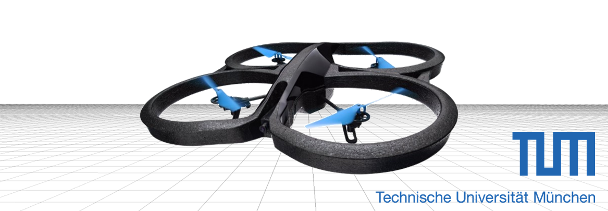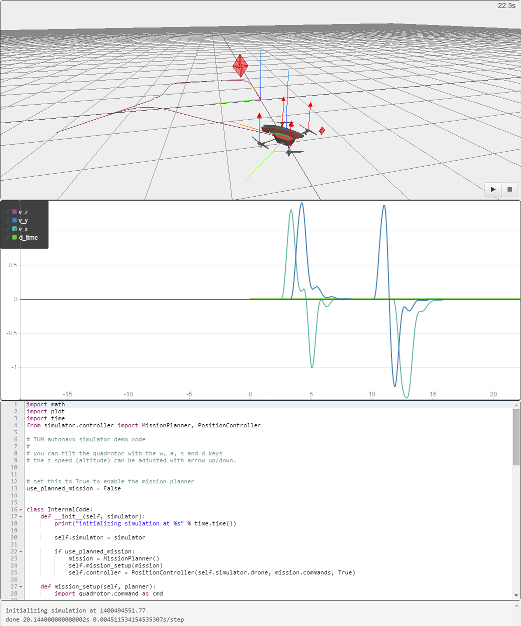Autonomous Navigation for Flying Robots (EdX course)
In this course, we will introduce the basic concepts for autonomous navigation with quadrotors, including topics such as probabilistic state estimation, linear control, and path planning.
About this course
In recent years, flying robots such as miniature helicopters or quadrotors have received a large gain in popularity. Potential applications range from aerial filming over remote visual inspection to automatic 3D reconstruction of buildings. Navigating a quadrotor manually requires a skilled pilot and constant concentration. Therefore, there is a strong scientific interest to develop solutions that enable quadrotors to fly autonomously and without constant human supervision. This is a challenging research problem because the payload of a quadrotor is uttermost constrained and so both the quality of the onboard sensors and the available computing power is strongly limited.
In this course, we will introduce the basic concepts for autonomous navigation for quadrotors including topics such as probabilistic state estimation, linear control, and path planning. You will learn how to infer the position of the quadrotor from its sensor readings, how to navigate along a series of waypoints, and how to plan collision free trajectories. The course consists of a series of weekly lecture videos that we be interleaved by interactive quizzes and hands-on programming tasks. The programming exercises will require you to write small code snippets in Python to make a quadrotor fly in simulation.
This course is intended for graduate students in computer science, electrical engineering or mechanical engineering. The course is based on the TUM lecture “Visual Navigation for Flying Robots” which received the TUM TeachInf best lecture award in 2012 and 2013. The course website from last year (including lecture videos and course syllabus) can be found here: http://vision.in.tum.de/teaching/ss2013/visnav2013
Organization
The lecture will be given by Dr. Jürgen Sturm and Prof. Dr. Daniel Cremers. The teaching assistants are Christian Kerl, Julian Tatsch and Jonas Jelten.
Enrollment: Via EdX website.
Classes Start: 6 May 2014
Course Length: 8 weeks
Estimated effort: 4 hours/week
ECTS: Unfortunately, there is currently no possibility for us to give ECTS credits to TUM students for this course. We are working on a solution for this problem. In the mean time, EdX offers ID-verified certificates for students who participated successfully in the course.
Interactive Exercises and Quadrotor Simulator
For this course, we developed a JavaScript-based quadrotor simulator that runs directly in the browser. You can program this simulator using Python.
You can also download the simulator for offline use. However, you need to activate JavaScript in your browser to run on local html pages. Alternatively, you can set up your own (local) webserver.




